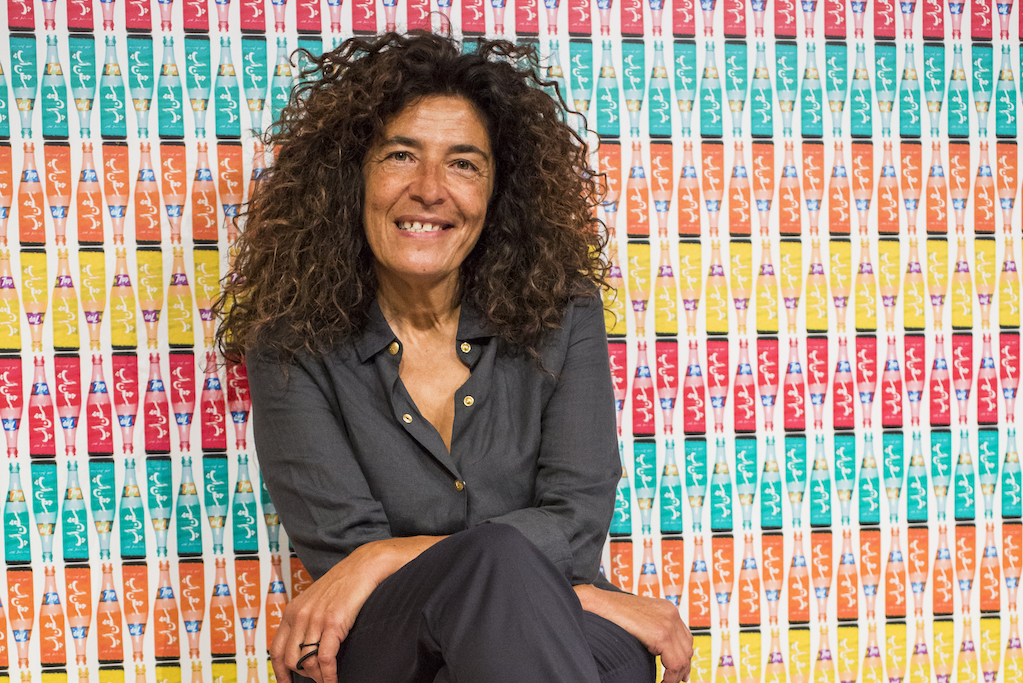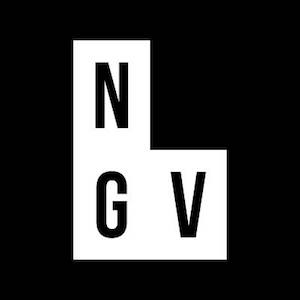Here’s What Happened When We Speed Dated A Muslim
We sat down with Hana Assafiri to ask her anything and everything about Islam ahead of her appearance at NGV Triennial EXTRA.


Don’t miss Triennial EXTRA, a summer festival bringing together dance performance, guest DJs, pop-up bars, food, architecture and conversation.
What would you ask a Muslim Australian woman if the opportunity for a frank conversation arose? Would you ask what it’s really like to wear a burqa on a 30-degree day, or how it feels to be part of a marginalised minority? It’s an unfortunate reality that many of us hardly ever find ourselves in this situation – something Melbourne-based community advocate and restaurateur Hana Assafiri is combating with gusto.
Assafiri is the creator of Speed Date A Muslim, an event that positions conversation as a genuine tool for progress. Attendees are encouraged to engage Muslim women in candid dialogue, to ask questions they’d otherwise be too afraid to bring up.
“It’s an initiative founded in the wake of the attacks on the Charlie Hedbo offices in Paris. It’s based on building bridges across what seems to be a very divisive and hostile environment, particularly impacting Muslims and Muslim women specifically,” explains Assafiri. “We want to engage the community in a place where people can connect with one another’s humanity.”
This month, Assafiri and the Speed Daters are presenting In Good Faith at the NGV Triennial EXTRA, a chance to discuss Islam with real people in the midst of artist Hassan Hajjaj’s Noss Noss installation.
Here, we sit down with Assafiri herself to test our own speed-dating skills before In Good Faith kicks off on January 23.
Junkee: Do you ever find yourself frustrated or fed up with Islamophobia and how it’s perpetuated in society?
Hana Assafiri: No, because I’m invested in a better world. Sometimes what I find more overwhelming is how we’re ignoring conversations around climate change.
The conversation about Islam becomes predictable, which doesn’t help anybody but this is our normal. It’s our life. Can we imagine it differently? Absolutely, that’s what we’re striving for. We’re doing as much as humanly possible no matter the changing external environment.
Do you get nervous about how non-Muslims react every time an extremist group like ISIS claims responsibility for a terrorist attack?
Terrorist attacks have become something we’re well accustomed to, so people [are] less likely to accept that narrative. You can unsettle people, you can whip up hostility and make a society anxious but at some point, you can’t sustain it.
You can unsettle people, you can whip up hostility and make a society anxious but at some point, you can’t sustain it.
People are coming back to, “hey I know my neighbour” and almost feeling the opposite of fear. That’s certainly something I’ve witnessed over the last 18 months.
We brace ourselves every time there’s an attack, we hold our breath when something happens and say “I hope he’s not Muslim,” but I’m really pleased to say that at a community level and the young in particular are rejecting that rubbish. That’s where hope lies for me.
Is there a role for feminism in Islam?
Absolutely. In my view, the interpretations of all social systems, from how they’re being conceptualised to how they’re being implemented, are male dominated and require the subjugation of women – there’s nothing unique about Islam. To reclaim a sense of empowerment for women, it’s fundamental to reinterpret and reconceptualise the meaning of Islam.
It’s important to define what feminism means in an Islamic context. It doesn’t just recognise the gender relations – it recognises all forms of injustice and the differing roles of genders.
My quest as a Muslim woman is to live with dignity and respect and independence and a sense of empowerment whatever my authentic choices may be. It’s a different expression of feminism.
Is treatment of woman in the Islamic faith oppressive?
[It’s] terribly oppressive in the practice of Islam, not in the faith. That’s the distinction I would make. Islam was designed to redress all societal inequity at a time where female infanticide was a practice and the poor were ill-treated. For me, it’s about asking why there’s been a departure from those principles that were founded on social justice. How do we justify in its very name the abuse of women?
But these are male interpretations of rituals that have been put in place over the years as distinct from the faith itself. Do they need to be addressed? Absolutely. Are women leading the charge on that? 100%. This is the nuanced space that we exist in: rejecting the misogyny and reacquainting ourselves with the faith.
In light of this move to reclaim the Islamic faith for women, how do you feel about garments of religious dress like the burqa and the hijab?
In the western world, we almost have neuroses about these garments. We think of them as symbols of oppression, terrorism and all sorts of nonsense.
Ultimately, the hijab and the burqa should be an expression of your faith and not a tool of your oppression.
Ultimately, the hijab and the burqa should be an expression of your faith and not a tool of your oppression. In an environment where women are choosing for themselves for their own reasons whether to wear a burqa or go butt naked in the street, I will defend that choice. It’s their decision.
In the era of #metoo, do you feel Islam as it relates to gender is under a microscope?
Islam is under so much scrutiny that if someone burped, the only explanation would be because they’re Muslim. Islam does not abuse people, people abuse people. Men abuse people.
How do you characterise the treatment of Muslims and Islam in the mainstream media?
Mainstream media has sadly become disengaged from communities generally, it’s in this closed populist propaganda loop. What guides its ratings and what we see as newsworthy is founded on a perceived clash between Islam and the West. Our appetite is for the sensationalist Imam saying crazy things, when there are thousands of Muslims doing or saying the contrary. Very little media coverage of Islam is positive, especially as it relates to women.
How do you feel about high-profile Australians such as Pauline Hanson and Sonia Kruger who openly oppose not only Islam but Muslims as well?
Alarmed, unsettled, disengaged, isolated, persecuted. But someone like Pauline Hanson is the result of a change in social appetites. 15 years ago, we all thought she was ridiculous; now even the ABC gives her a platform. She hasn’t changed; we’ve changed.
Freedom of speech is very different to hate speech, but there’s no leadership around those conversations so we began to collapse the two. Any endeavour to ridicule that conversation is perceived as silencing free speech. Have your bigoted opinions in your own head, fine. The minute you have those opinions in a public forum, there has to be some kind of regulation.
What did you think when Pauline Hanson wore a burqa in parliament?
I thought she looked better in it.
What can all Australians do to promote inclusion over discrimination?
Keep our assumptions in check. Adopt a mode of enquiry and be open rather than assuming. That’s not just for Muslim women, it’s for everybody we don’t understand.
What do you hope will come out of In Good Faith at NGV Triennial EXTRA?
Often times the arts, progress, and social justice are things that are not associated with Islam at all.
Art is actually foundational for Islam, and I think having the Noss Noss exhibition as a plaything at the NGV brings that home symbolically and practically. Morocco is probably the only place I know of where the tensions between Jews, Christians and Muslims don’t really exist.
The arts are known for progressing societies and pushing boundaries, and I think the fact that we can celebrate multiculturalism in the context of this exhibition is fantastic. The NGV has reached out to engage the community in a mainstream way, and it expands openness for broader society to come on board and showcase our humanity.
—
(Feature image: NGV Triennial EXTRA participant Hana Assafiri inside the Noss Noss space, 2017. Photo: Tobias Titz.)
—
To find out more about the free performances, talks, bars and food on offer at the Triennial EXTRA festival click here. Triennial EXTRA runs from 19 – 28 Jan at NGV International, 180 St Kilda Rd.